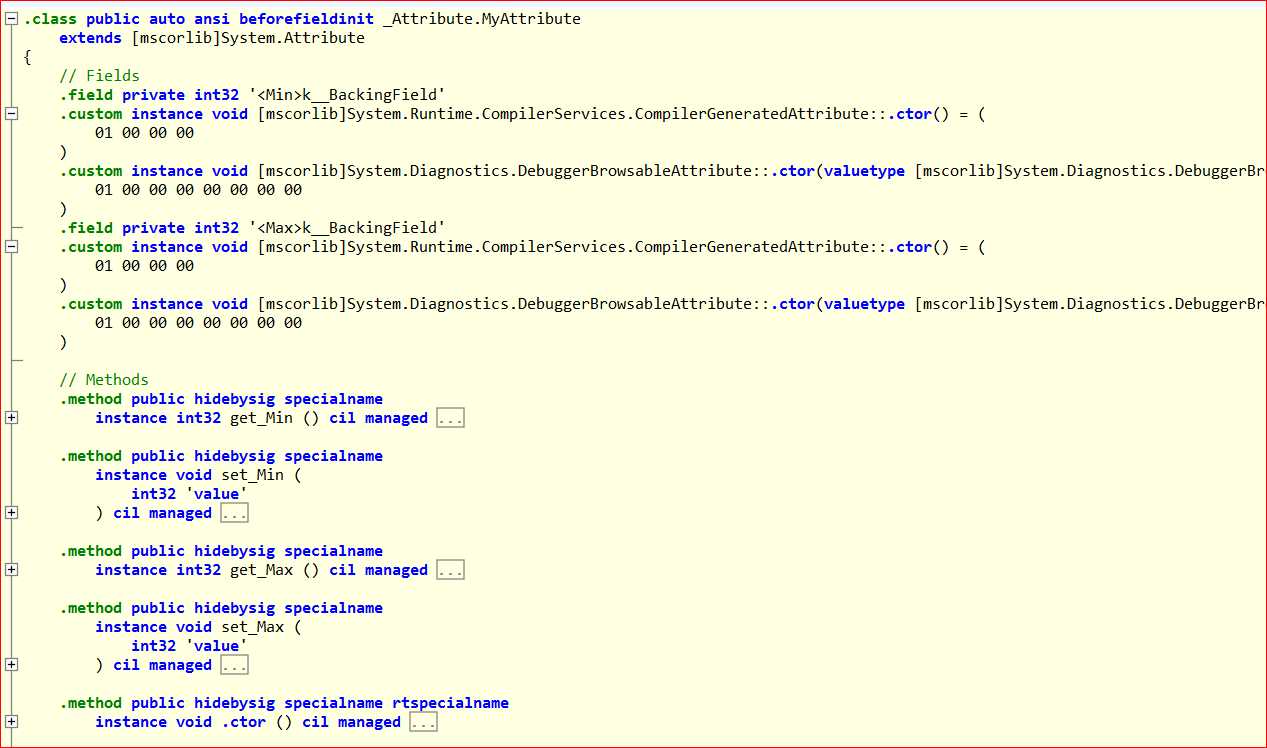C#之特性
2021-06-19 19:04
标签:反编译 识别 prope OLE 做了 var 范围 for get ---恢复内容开始--- 特性在我们平时编码过程中是随处可见的 向MVC中的Required非空属性验证特性 序列化和反序列化特性等等 我们在字段上标记这些特性 再引用上其中的类库 就会有相应的功能 其实在这过程中 框架为我们做了一些中间处理过程 下面我们就一起来看看究竟什么是特性 它究竟是如何工作的 1.声明特性 特性声明一般以Attribute结尾,因为以Attribute结尾一眼就能识别出是特性类 还有必须继承特性Attribute 2.特性的本质 从上面的代码可以看出特性的本质其实就是类class 反编译结果中也可以看出 3.特性的使用 C#之特性 标签:反编译 识别 prope OLE 做了 var 范围 for get 原文地址:https://www.cnblogs.com/hzpblogs/p/10279705.html public class MyAttribute : Attribute
{
public int Min { get; set; }
public int Max { get; set; }
public MyAttribute() { }
public MyAttribute(int min, int max)
{
this.Min = min;
this.Max = max;
}
}

public class MyAttribute : Attribute
{
public int Min { get; set; }
public int Max { get; set; }
public MyAttribute() { }
public MyAttribute(int min, int max)
{
this.Min = min;
this.Max = max;
}
public bool Validate(Person person)
{
if (person.Age >= this.Min && person.Age this.Max) {
Console.WriteLine("年龄不合法");
return true;
}
else
{
return false;
}
}
}
public class Person
{
//规定年龄范围 18-50
[MyAttribute(18,50)]
public int Age { get; set; }
public void Print()
{
Console.WriteLine(this.Age.ToString());
}
}
public static class Validate
{
public static bool ValidatePerson(this Person p)
{
Type type = p.GetType();
foreach (var prop in type.GetProperties())
{
if (prop.IsDefined(typeof(MyAttribute)))
{
MyAttribute myAttribute=(MyAttribute)prop.GetCustomAttribute(typeof(MyAttribute));
if (myAttribute.Validate(p))
{
Console.WriteLine("验证正确");
}
else
{
Console.WriteLine("验证错误");
return false;
}
}
}
return true;
}
}
Person person = new Person() { Age=10};
person.ValidatePerson();